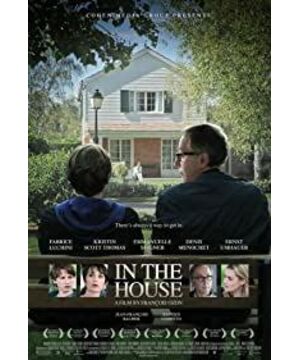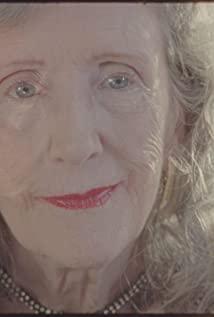"Entering the Hall" reminds me of Freud's words: The greatest secret of mankind is ¬-the things that people are least willing to share with others are always surprisingly similar. Things that peep through often have commonalities, and this universal commonality can naturally become a hotbed of so-called realism. We know that peeping is not only the physical and psychological commonality of all people, but also an important motif in literature and film creation. , The film "Entering the Hall" perfectly blends the literary and film elements of the motif of voyeurism, which arouses the voyeuristic desire of movie viewers, and brings a strong sense of participation, which makes people impressed and can't stop.
The hypocrisy and predicament of the middle class are the objects of voyeurism, and the Oedipus or Electra complex of the protagonist himself puts the voyeur on a layer of social taboos. Instinctive desires and social taboos are put together, and more It arouses people’s desire for voyeurism. Many times, voyeurism is pathological and dirty. However, when voyeurism is put on a heavy literary cloak, it seems that it can "come into the house" in some people's hearts. The film is aimed at the middle class. Repeated mentions and descriptions of its predicament make the film more tangible. The middle class is in a real predicament, and the desires are suppressed, and Claude is a key to unlock the desires. Claude said at the end of the film: People can always enter other people's lives because they always need something and there is always a way to enter the room. I think the point of this sentence lies in desire. In the film, it is precisely because Claude inspired the needs of his wife and son in the family that he was finally able to enter the room. In the film, the teacher Gilman silently promoted the whole The development of the event, when his latent desire for literary voyeurism was stimulated, his sense of control and satisfaction with the event also intensified. From his curiosity out of literary literacy at the beginning to his desire for the completeness of the event, the sense of participation brought the whole The trend of the story is getting deeper and deeper, and the audience's voyeuristic desire has also been satisfied. This kind of voyeurism under literary creation is very experimental, and the involvement of social taboos also makes this movie full of ambiguous.
The most exciting thing in the film is that the boundary between reality and virtual world is handled properly. Teacher Gilman is a true literary lover and the main reader of this voyeuristic literature. In the later stage of the incident, as the story goes up and down, Gilman Teacher Man is obviously lost in reality and virtuality, and his excellent sense of incorporation also makes the audience outside the screen unable to distinguish between virtuality and reality. It can be said that this voyeuristic literature by Crowder is extremely successful. The most successful aspect of this film is that in the entanglement between reality and virtuality, literature and morality, the initiative of the story has silently changed. At the beginning, Teacher Gilman controlled the direction of the whole story, but it was here. In the second half, the initiative began to reverse. Teacher Gilman lost control and initiative over the incident because he got too deep. The final initiative returned to Claude's hands, and Teacher Gilman finally Being involved in the incident has become a character in this voyeuristic literature, from a voyeur to a voyeur. But beyond the scope of ethics and morality, whether Claude and Gilman are doing right or not, it can be seen in the film that the two people really cherish each other, and the year-long acquaintance of this period of literature makes these two people lonely. A true bosom friend is found in the crowd, and Claude's monologue at the end of the film confirms this. The ukiyo-e prints in the grids on the floors that pay tribute to "Rear Window" at the end of the film draw a meaningful and thought-provoking end to the story.
The fusion of literature and images makes this film more attractive. The pleasure of reading in the text is restored to the images without loss. The coordination and collision between Claude and Gilman in the conception and direction of the story makes the direction of this story. It’s even more interesting. Gilman’s self-deceiving but bottomless attitude makes this character more three-dimensional and plump. Claude’s role change between righteous and evil makes the character full of discernment. These two teachers and students on the ground, Underground voyeurs use each other to satisfy each other, and cherish each other, enjoy the perverted happiness brought by literature. The book atmosphere makes this movie more lively than previous voyeur-themed movies like "Rear Window" and "Bitter Moon". The theme of the discussion and the depth of the movie are not inferior to some of the previous voyeuristic motif business cards. The various sexually suggestive artistic settings in the film make this voyeur more ambiguous, and what is more interesting is the relationship between the various characters in the movie, even more ambiguous, although not clear, but feel serious...
The story of the film advances layer by layer, and the suspense continues. The tension of the story is getting bigger and bigger with the development of the plot. The ending is very open. After a whole circle, the whole story returns to the original point. This is a kind and full of wisdom and wisdom. The end of depth. Ou Rong’s precise control of the story, proper and precise handling of reality and virtuality, he puts layers of circles between creation and re-creation, making the story unexpected, and the story’s handling of some detailed paragraphs also means Profound, the combination of literature and film is perfect, and the use of the psychology of the voyeur is also very skillful. When the virtual and reality are unclear, the voyeur is like a mouse in a maze, rushing to all possible exits in panic, but The final ending is back to the original point. The whole story is full of various possibilities, a huge amount of information, and a lot of content that can be interpreted and unearthed. The large amount of Chinese elements in the movie is also very interesting. An empty escape exit for himself in a predicament is actually just a mirage after all. The mirror image of literature is still reality. Sitting in the back window, the Ukiyo-e that I see is worthy of literary peeping and reshaping everywhere.
The things that people least want to share with others are always surprisingly similar. I don’t know if this is a tragedy or a comedy.
View more about In the House reviews











